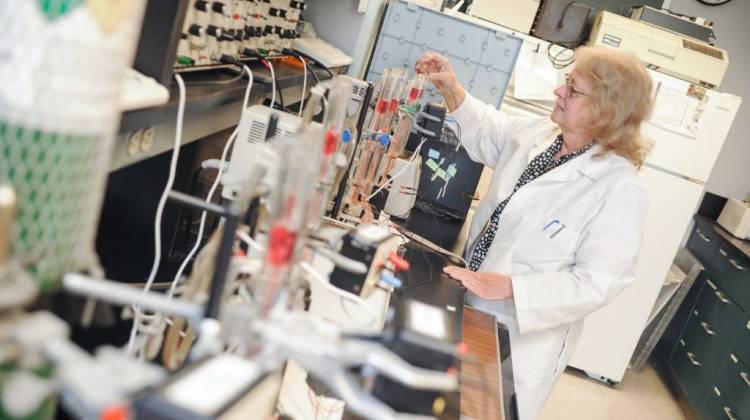
Bonnie Blazer-Yost uses electrophysiological techniques to study ion transport in her School of Science lab.
Photo courtesy of School of Science at IUPUIIndiana researchers recently received nearly $2 million to work on development of the first treatment for hydrocephalus, a neurological condition known as “water on the brain.”
It was at work with rodents in her lab where Indiana University-Purdue University Indianapolis physiologist Bonnie Blazer-Yost made an unexpected discovery.
“What we found is the drug we were targeting for their kidney disease actually worked better for the brain,” says Blazer-Yost.
The research is now backed by federal funding to develop a drug for hydrocephalus, a build up of cerebral spinal fluid in the brain.
The grant will also allow the team to investigate its causes. Blazer-Yost says the condition can occur after a traumatic brain injury or in premature infants.
“OK, we have the brain bleed, but what is it about the brain bleed that actually causes the fluid to build up?” says Blazer-Yost.
The team of researchers at IUPUI and the IU School of Medicine received the $1.8 million grant from the U.S. Department of Defense. Blazer-Yost says funds will help longterm study.
“This enables us to do the cutting edge experiments that are necessary to follow the development of the disease over time,” she says. “And specifically to follow the development of the disease while we are treating the animals with the potential drugs.”
The only current therapy is brain surgery that often needs to be repeated.
 DONATE
DONATE









 Support WFYI. We can't do it without you.
Support WFYI. We can't do it without you.